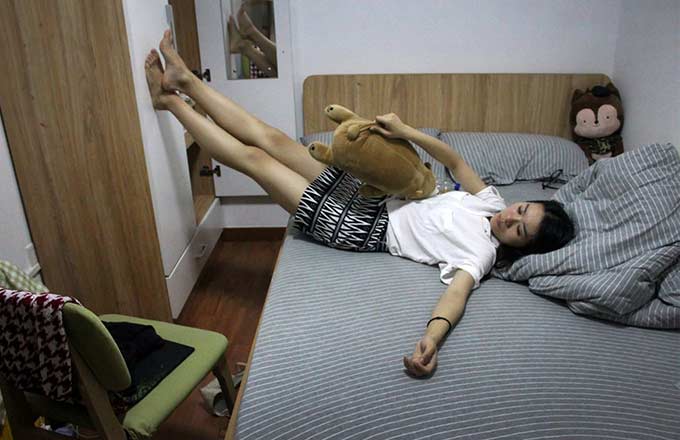Food for thought for migrant workers
Recently, I've noticed a sharp decline in the number of food stands in the streets around my community. These places usually serve cheap, instant food such as fried potatoes, pancakes and malatang (boiled vegetables and meat in a spicy sauce). Owing to concerns about hygiene I have never bought anything from them, but I always see crowds standing around them on my way home from work.
My neighbor told me that the authorities have been urging migrant workers who live in basements in nearby residential communities to move out for their own safety. However, the workers are the main customers of the food stands, so their sudden departure has resulted in a fall in business.
Most migrant workers make about 1,500 yuan ($216) to 3,000 yuan a month working in restaurants, shops or other unskilled jobs, so basements are probably the only places they can afford to rent and the food stands are their "restaurants" for every meal.
While I'm saddened that the workers have been asked to leave, and I hope they can find somewhere more pleasant and safer to live, people really should not be forced to live in basements in China.

When I studied in the United States, I rented an apartment in a converted basement. It was a half-sunken chamber with a small window, but the facilities were brand-new - a brightly lit bathroom, a dining room and a bedroom with carpet on the floor. Even so, after a few months I moved into an upstairs room in the same house.
In China's large cities, many apartment owners earn additional income by renting out their basements to migrant workers. The basements in my community haven't been upgraded into living spaces, though - instead, they are just dank, dark and unsafe rooms used to store infrequently used items. If a fire were to occur, it would be difficult to evacuate the room.
Of course, it's not wrong for the authorities to close this safety loophole, but for the individuals who come to Beijing and chase their dreams by working hard, higher rents are an extra burden they don't need.
So, why do migrant workers struggle on in China's large cities? My guess is "hope".
If you live in a small city in China for a while, you will discover that guanxi, or "connections", are extremely important, so people only help people they know. That means they tend to contact a relative or friend who works at a school or hospital before they send their children to study at that school or bring their parents to see a doctor.
Most of my relatives and former classmates in my hometown of Taiyuan, the capital of Shanxi province in North China, got their jobs through their parents or other connections instead of applying online like everybody else. My mom even asks an acquaintance to buy shoes on her behalf to avoid paying over the odds, and to guarantee quality.
People are used to the fact that China is a society based on guanxi, and they know that injustices occur sometimes, but if a person has no connections, it's hard for them to get things done.
Corruption is another obstacle that prevents ordinary people from realizing their life targets, although the situation is slightly different in Beijing and Shanghai, which provide relatively equitable ways for people to enroll in schools or get a job.
I believe that if people could find decent jobs in their hometowns and lead relatively prosperous lives, they would not choose to come to Beijing, risking their health in the heavy smog that blankets the city every winter.
"Big city disease" - overcrowding, pollution and a lack of social amenities - is an economic issue.
Only when enough cities are able to provide more land for construction and buildings for newcomers to live in, along with equal job opportunities and good education and medical care services, will migrant workers be freed from the ignominy of living in basements and desperately hoping that their hard work will allow them to live "upstairs" someday.























